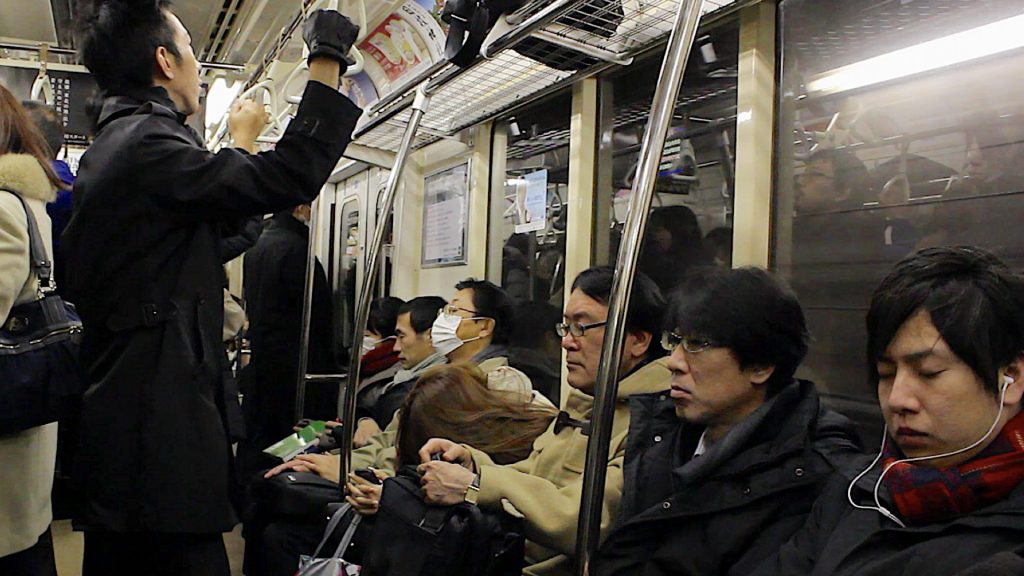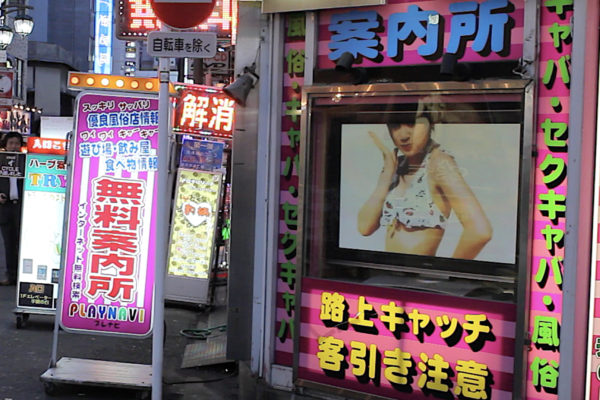Article written by 東海林智, and originally featured here.
「10%以上の賃上げを」非正規労働者ら、春闘に向け団体設立
非正規労働者らを多く組織する個人加盟が中心の労働組合や地域労組が4日、2024年春闘へ向けた共闘組織「非正規春闘実行委員会」を設立した。物価高による生活苦が社会に広がる中、一律10%以上の賃上げを方針に掲げた。実行委は「一人でも賃上げを求め声を上げることはできる。一緒に賃金を上げよう」と呼びかけた。
SNA (Tokyo) — US President Joe Biden ensured that December 2, 2022, will go down as a dark day in the history of the US labor movement. He signed legislation that forces railway unions to accept a miserable contract, robbing them of their right to strike for better conditions. A week prior, the Tokyo Labor Relations Commission provided us a brighter day in labor history with the first ever ruling extending union rights to those engaged in work via an online platform.
The Tokyo Labor Relations Commission ruled that Uber Eats Japan’s “delivery partners” are workers and have all three trade union rights–the right to solidarity, the right to collective bargaining, and the right to strike. The commission ordered Uber Eats Japan as well as two Uber subcontractors that handle delivery driver registration, support, and education to negotiate with the Uber Eats Union in good faith.
The delivery giant registers its deliverers as individual service providers with zero protection under Japanese labor laws, including the key Labor Standards Act and Trade Union Act.
The definition of rodosha (worker or employee) differs depending on which labor law is applied, be it the Labor Standards Act, the Trade Union Act, the National Health Insurance Act, or one of many others. The definition under the Trade Union Act has the broadest scope, so many workers have union rights, but don’t enjoy wage and other rights as stipulated in the Labor Standards Act.
Article 1 of the Trade Union Act stipulates the purpose of the law–to ensure that workers can band together (“combine” in Adam Smith’s terminology) to increase their negotiating position, come to the table with employers as equals, and improve their working conditions.
The Tokyo Labor Relations Commission had to determine whether or not Uber Eats delivery partners (in Uber’s phony circumlocution) enjoy the status of rodosha and its attendant three union rights. The corporation claims that it provides the service of “matching” restaurants and those who want to order food, and thus its platform users don’t “provide labor” to the Uber Eats platform operator.
“Uber doesn’t only provide the platform to the delivery partners,” the judgement read.
The reality is that it is in many different ways involved in the completion of the delivery, and since the delivery partners must complete their deliveries under Uber oversight, it’s hard to conceive them as being nothing more than simple “customers” (platform users). We can strongly infer the possibility of assessing what they do as providing labor to Uber, which runs the business within the overall Uber Eats business.
The following labor ministry checklist, created based on previous jurisprudence, is used to determine rodosha status under the Trade Union Act:
1. The purported rodosha are integral to the business organization
2. Contracts are written unilaterally or uniformly
3. Remuneration is in exchange for labor/work
4. The purported rodosha are expected to accept orders (i.e. not really free to say no)
5. Work hours and locations are determined by the corporation, not by purported rodosha
6. The corporation takes the key risks, rewards, and decisions who does the work
In other words, courts and labor commissions have looked not only at the words written on the contract, but also at the reality of the relationship between the corporation and the purported rodosha.
The Tokyo Labor Commission ruled September 3, 2019, that language teachers working at Gaba had all three labor union rights based on the actual relationship between Gaba and teacher, despite Gaba contracts alleging that instructors are independent service providers. The commission took cognizance of the fact that both Uber Eats and Gaba set forth strict, detailed rules that their deliverers or teachers must follow, contradicting the notion that they are merely intermediaries matching up providers and users.
Gaba appealed its loss to the Central Labor Relations Commission in a case nearing its conclusion. Uber Eats is considering its options, including an appeal to the higher body.
Platform operators like Uber are growing in number, in part due to the impact of the pandemic. Whereas it does afford platform workers a degree of freedom in terms of working times and locations, the jobs inherently lack security, social insurance, and other social safety benefits. Some have called for the drafting of legislation to protect freelancers.
So far, however, Prime Minister Fumio Kishida has not moved forward with policies to protect platform workers.
This ruling is a good first step, to be sure, but it should also be obvious. Corporations are increasingly turning to this model of treating working people and their labor as commodities to enrich themselves and their businesses, while taking zero responsibility for their rights, protections, or welfare.
Let us condemn this insidious corporate machination, even as we welcome this particular verdict.
This article was written by Hifumi Okunuki, and originally published by the Shingetsu News Agency (SNA).
SNA (Tokyo) — Kata-tataki, or taps on the shoulder, indicate a series of actions a boss takes to drive a worker to quit without outright firing them. It establishes that the subsequent contract termination is mutually agreed, as opposed to a unilateral and contestable firing. The legal jargon for such “shoulder tapping” is taishoku kansho. In this installment of Bread & Roses, I’d like to explain the practice and introduce a recent, surprising verdict in a court case over its validity.
In August 2018 at the age of 19, Le Thi Thuy Linh arrived in Japan to work as a jisshusei intern. Each day, she handled agricultural wastewater at a tangerine orchard in Kumamoto Prefecture. Japan’s rapidly ageing population has created a dearth of agricultural workers, forcing farmers to turn to young foreign interns like Linh to maintain their farms.
弁護士加藤佳子東ゼン労組執行委員長奥貫妃文は産後産前休暇とマタハラパタハラを講義する。
Attorney Kato Keiko and Tozen President Hifumi Okunuki teach us about the law and legal cases around maternity leave, and maternity and paternity harassment.

SNA (Tokyo) — Remote work is no longer a remote concept. Since the start of the coronavirus pandemic, we have seen telework, work-from-home, and workations soar in the popular imagination, and indeed become a reality in many lives. The very meaning of work is undergoing a tectonic transformation before our eyes. So let’s look at telework’s oft-missed underbelly.
Top of any list of terrible Japanese work customs must come long work hours and unpaid overtime.
Below those come mad morning and evening rush hours with train cars packed up to 200% capacity with straphanging workers–sushi-zume (“sushi in a bento box”) or, as anglophones say, “packed like sardines.” The brutality of commutes in urban Japan have inspired commentators to commonly make a pun on the word tsukin (commuting) by replacing it with the phonetically identical, but spelled in kanji differently word tsukin (pain). Most of us have come to resign ourselves to the reality that rush-hour nightmares will never end, and we just have to suck it up.
東ゼン一日行動(上)
神田にあるシェーン英会話本社前で抗議行動を始めした。
The first part of Tozen’s All Day Protest.
Starting with the Shane Worker’s Union protesting at Shane English School Head Office in Kanda, Tokyo.
東ゼン一日行動(中)
神田にある神田外語大学院前で抗議行動を始めした。
The second part of Tozen’s All Day Protest.
Kanda University of International Studies (KUIS) Union protesting at Kanda University of International Studies in Kanda, Tokyo.
東ゼン一日行動(下)
銀座にあるインタラック本社前で抗議行動を始めした。
The third part of Tozen’s All Day Protest,
Interac Union protesting at Interac HQ in Ginza

On November 16, the Tokyo Metropolitan Government announced the disciplinary dismissal of a 28-year-old school nurse for moonlighting as a sex worker for more than a year.
Tokyo officials interrogated her after receiving an anonymous tip about her after-hours work. The primary and middle school nurse said she wanted to save enough money to live on her own in the city. The officials used the word menshoku (removal/dismissal from office) rather than kaiko (dismissal from employment) since she was a local government civil servant.

SNA (Tokyo) — Suit-clad office workers, long-haul truck drivers, ramen shop food preparers, fake priests at faux churches, insurance solicitors, rice paddy farmers, maid cafe servers, security guards, nurses, train conductors, schoolteachers, nursery school caregivers, bank tellers, garbage collectors, plumbers, paralegals, social workers… How many megabytes would it take to list all jobs that occupy the days of the workers who make our society run?
Riddle me this: What job permits you, during a single lifetime, to experience any job on the planet?
Give up? Acting. An actor on stage or screen can do any job that exists and even any job that does not exist. On stage and for a limited time only, before the final curtain, you can become a queen or a serial killer.
The Japanese word rodosha is often translated as “laborer,” but the word “worker” better reflects the ubiquity of its usage. For labor law, however, the word rodosha should on most occasions be translated as “employee,” since it delineates a relationship with management, rather than one’s position in society.
In this piece, I will use rodosha, meaning “employee protected by the various labor laws in Japan.”
Is a stage actor a rodosha? Does she enjoy all protections accorded to a rodosha under labor law?
A recent court case may provide the answer.
Defendant Air Studio Company produces stage plays, films, studio management, handles celebrities, and runs restaurants. The theater troupe Air Studio stages performances nearly each week.
The plaintiff signed a contract and joined the troupe at age 22, dreaming of becoming an actor. In addition to performing on stage, the plaintiff also worked on sets, props, sound, lights, and other tech crew duties–all unpaid. After four years, the firm began paying him a ¥60,000 (US$540) “support stipend” each month. He devoted himself to acting and backstage work without a break, clocking up to twelve hours a day, with no time to eat properly. He fell into financial hardship. At the end of his rope and no future in sight, he left the troupe in 2016.
Then, he sued the company for back wages for his performances and tech crew work. The question arises: was he an employee? Was his work rodo, deserving of wages as stipulated in the Labor Standards Act?
On September 4, 2019, Tokyo District Court ruled that his backstage activities were indeed rodo and in engaging in those activities, he was indeed a rodosha, protected by labor laws. But the court did not recognize his acting on stage as the work of an employee of the company.
Both sides appealed the split verdict to the Tokyo High Court. The plaintiff insisted that his acting too was labor protected by labor law, while the defendant claimed that none of his various duties could be characterized as wage labor performed by an employee (rodosha).
Almost a year later, on September 3, 2020, the High Court ruled in favor of the actor, recognizing all the work, including performing on stage, as labor subject to wage regulations.
The lower court had said that acting on stage was an optional part of his job and that he was free to accept or refuse. Freedom to accept or refuse is a key principle that determines rodosha status in Japanese courts.
The appellate court agreed that the actor could refuse to act on stage with no apparent disadvantageous repercussions, but noted that “one joins a theater troupe in order to act on stage, making refusal inconceivable under normal circumstances. The troupe members prioritized completing the tasks received from the defendant and had no realistic option other than to comply with orders. Thus, they cannot be said to have had the right to accept or refuse.”
The Tokyo High Court concluded that the job fit the definition of a rodosha in Article 9 of the Labor Standards Act and ordered the defendant to pay unpaid wages of ¥1.85 million (US$16,670).
This verdict sent shock waves through the Japanese theater industry, where unpaid apprenticeships have always been the norm. Ripples had spread throughout the industry even with the lower court’s ruling that backstage work was… well… work. But the judge’s ruling that even acting on stage was subject to wage regulations terrified the industry.
We labor law academics have always considered anyone who must follow orders–regardless of the name of the job–as rodosha, but indignant business representatives asked if the court is trying to destroy the Japanese theater industry, and predicted the extinction of all theater troupes, other than giants such as Shiki Theater Company.
It’s fair to say that those pursuing an acting career often struggle with no money but abundant aspiration. Masato Sakai often speaks on television about how he dropped out of college to found his own theater troupe, only to have to string together part-time jobs for a decade as this theater attracted no audiences. He laughs while recounting how he resorted to eating wild dandelions when he was flat broke.
He is not alone–many successful actors share similar experiences.
Many might feel some resistance to this verdict, since this is a world actors choose willingly to dive into. Why should they be counted as an ordinary rodosha? If they are rodosha, then they are entitled to job security and cannot be fired without a darn, good reason.
Yet, actors usually must audition to get parts in a world of cutthroat competition with few cast.
I understand this sentiment for what it’s worth. At the same time, I oppose settling for some sort of extraterritoriality that deprives actors of all labor law protections. While considering the special nature of the work of an actor, we must also ensure an environment that enables them to live lives befitting of human beings.
This article was written by Hifumi Okunuki, and originally published by the Shingetsu News Agency (SNA).
奥貫妃文の詩。
A poem by Hifumi Okunuki.
(English is below the Japanese.)
いまは、いったいいつなんだろう。
ここは、いったいどこなんだろう。
東京都新宿区、奥神楽坂の我が家から歩いて3分。
中国人のジャンさんが営む中華料理レストランがあった。
私と夫は頻繁に通っては、裏メニュー「黒酢きゅうり」を頼んでいた。
2021年8月の現在、その店は、もうない。
夜遅くまで客足が絶えず、楽し気な声で満ちていた店は、真っ暗なまま。
がらんどうになった店の入口は、落ち葉の吹き溜まりになっている。
壁には「テナント募集」の張り紙。それもすっかり色褪せ、
今にもはがれそうにカサカサ、カサカサ、と音を立てている。
新しい賃借人が入るのは、いつのことになるだろうか。